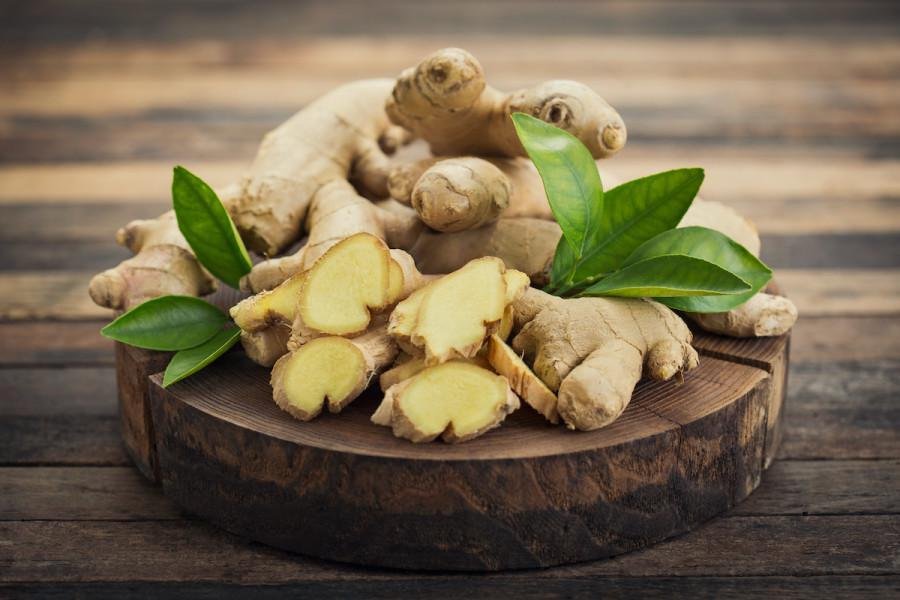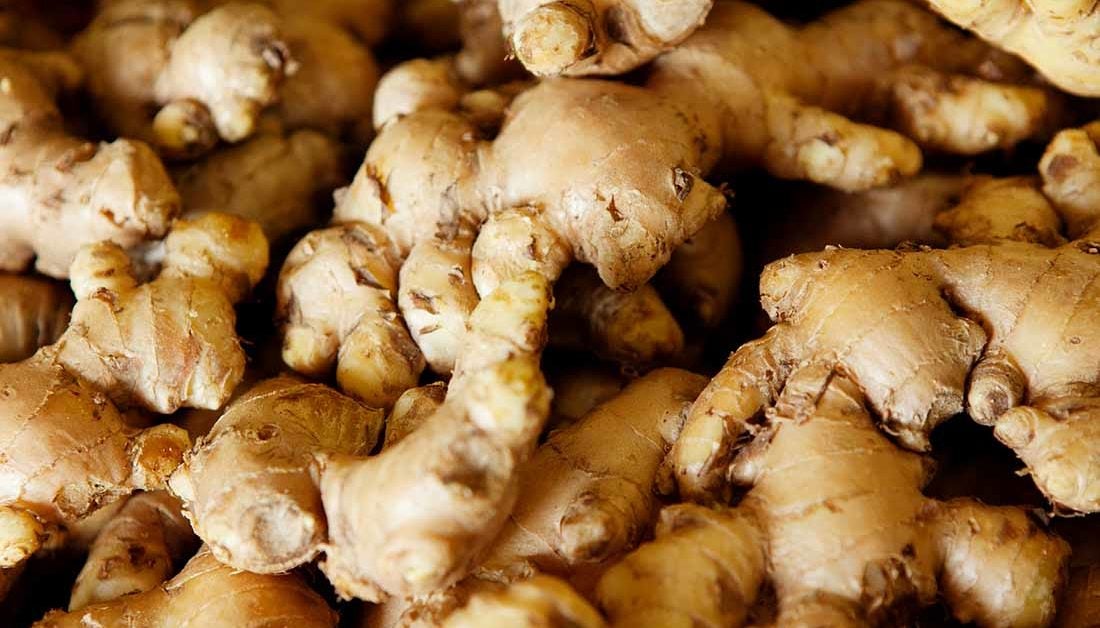
Ginger is widely used as a traditional Ayurvedic medicine in Indian culture. It is also a key ingredient in Indian gravies, drinks, and side dishes. It has a pungent and spicy flavor that is mainly used as a flavoring agent in cooking. Originating in Southeast Asia, ginger today is widely used across the world and has been a part of Asian cuisines for centuries.
Read on to know about the incredible health benefits of ginger!
Ginger has been popular as a spice for 5000 years. The Indians and ancient Chinese used ginger root as a tonic to treat common ailments. Ginger was one of the most widely traded spices. It was valued for its medicinal merits attributed to its rich phytochemistry.

It is only in recent years that ginger has become more valued as a spice than for its medicinal properties. Ginger was exported to Rome from India but its use declined once the Roman Empire fell. After the end of the Roman Empire, the Arabs took control of the spice trade. Today ginger is grown throughout the world.
-Ginger comes from the same family as cardamom and turmeric.
-In the 11th Century AD, ginger was used to add taste to buttermilk drinks.
-Queen Elizabeth I of England invented the gingerbread man, the popular Christmas treat.
-A ginger plant can grow up to 4 feet tall.
Fresh ginger has two components: volatile and non-volatile. Volatiles include hydrocarbons responsible for the distinct aroma and taste of ginger, whereas non-volatile (pungent) compounds include gingerols and shogaols. Gingerol is the main bioactive compound in ginger, responsible for many of its medicinal properties. It has powerful anti-inflammatory as well as antioxidant effects.
Health Benefits of Ginger
Ginger has been popular for its therapeutic properties for thousands of years. It is the most important herbal medicine of all time. Ginger health benefits include treating several ailments, including degenerative disorders, digestive disorders, cardiovascular disorders, vomiting, diabetes mellitus, and cancer. Some other ginger benefits include providing relief from arthritis, rheumatism, sprains, muscular aches and pains, congestion, and coughs.
Additionally, ginger helps to cure fever, flu, chills, and infectious diseases. To a great extent, ginger also cures diarrhea, indigestion, and loss of appetite. It also has anti-inflammatory and anti-oxidative properties responsible for controlling the aging process. It can also treat various microbial infections, hence serving as an anti-microbial agent.
Some other health benefits of ginger are:
Fights Inflammation
Gingerol has anti-inflammatory properties that help cure disorders such as gastritis, esophagitis, and hepatitis. These compounds help fight off infectious agents as well as physical and chemical irritants.

Prevents Cancer
According to a study published in 2015, 6-shogaol, a pungent constituent of ginger produced when the root is either dried or cooked has cancer-fighting properties. Ginger benefits by inhibiting the growth of breast cancer cells. Additionally, it is non-toxic to non-cancerous cells – a crucial difference from conventional cancer treatment methods which do not have selective cytotoxicity (quality of being toxic to cells).

Manages Diabetes
Research studies suggest that ginger benefits against diabetes and related complications. Several studies affirm that ginger significantly lowers blood glucose, serum total cholesterol, low-density lipoproteins, very low-density lipoproteins, and triglycerides. It also raises high-density lipoproteins in diabetic patients.

Reduces Oxidative Stress
Increased production of free radicals results in oxidative stress, which causes DNA damage, neurodegenerative diseases, heart disorders, cancer, and even aging. Compounds like gingerols have anti-oxidative properties that help scavenge excess free radicals from the body, preventing oxidative stress.
Other Ginger Benefits
You can use fresh or dried ginge in oral or topical preparations to treat a variety of ailments. Alternatively, you can apply its essential oils topically as an analgesic. Evidence suggests ginger is most effective against nausea and vomiting associated with surgery, vertigo, travel sickness, and morning sickness. However, the topical use of ginger may cause allergic reactions in some people.
Culinary Uses of Ginger
Ginger serves as a hot, fragrant kitchen spice. Ginger roots often turn up in Indian curries, Chinese stir-fries, chutneys, and meat seasonings as well as in Japanese marinades.

You can use ginger in desserts, from cookies to puddings and even pumpkin pies! Additionally, you can steep it in boiling water to make herbal ginger tea. You can also use ginger to make candies and ginger wine!
Thus, ginger certainly comes with its plain looks but has stood the test of time due to its medicinal and culinary uses. Do you know any other uses or benefits of ginger? Let us know in the comments below!
Disclaimer: The information and other content provided in this blog, or in any linked materials, are not intended and should not be construed as medical advice, nor is the information a substitute for professional medical expertise or treatment. If you or any other person has a medical concern, you should consult with your healthcare provider.


.png)


